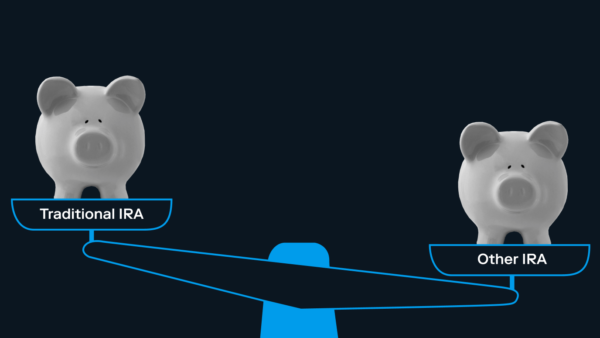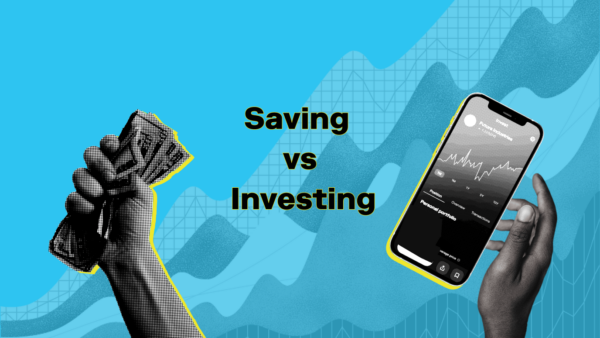Aug 15, 2018
How Fantasy Football Can Teach You About Investing
If you can draft a great team, you can build an investment portfolio.

You’ve crunched the numbers. You’ve scoured the data. You’ve studied up on each NFL player’s stats. After much planning and sweating, you finally created your dream fantasy football roster.
Here’s what you may not have known: Many of the strategies you use to create your dream fantasy football team are useful for first-time investors.
The best thing about creating a portfolio is that you don’t have to bite your nails through a draft or hurry home to make your picks. And unlike fantasy football, you can invest any time and make decisions when you’re ready.
Here are a few ways that fantasy football can teach you about investing:
Diversify your roster
Your roster is sort of like your portfolio. A roster is the list of all your players. A portfolio holds all your investments.
Just like you wouldn’t want to put all your hopes on a superstar quarterback and fill the rest of your team with bench warmers, you wouldn’t want just one trendy, overly-touted stock in your portfolio. If that stock gets hit, your portfolio will feel the pain. Same thing for your roster if your quarterback tears his ACL.
This is where diversification comes in.
You want a variety of players from different teams with different skills that can pick up the slack if one of your best players is a bust. The same is true for your investment portfolio.
In short: A diversified roster will make sure your team keeps moving in the case of a setback. A diversified portfolio will balance out your risk in case one sector or company fumbles.
Don’t have a home bias
Do you pledge allegiance to the NFC South? If so, you may be likely to fill your roster with Falcons, Panthers, and Buccaneers.
Pats, Giants, and Bills? No way.
Does this sound like you? Then you have, in investment terms, home bias. And that can limit the potential of your roster. Your bias toward Southern teams keeps you from harnessing the talent of players from other teams. Especially if your players are used to playing in the heat but choke when faced with frigid weather.
In the investment world, home bias means that you have a propensity to invest most or all of your money in equities (that’s stocks) from American companies. Home bias can keep you from realizing gains from international equities, which can balance out your portfolio.
If the U.S. stock market hits a stumbling block due to political strife or sudden sell-off, your international holdings may hold steady. After all, the Japanese market may not be reacting to the same things our markets do.
Don’t overreact to Fantasy Football chatter
The rumor mill is always swirling. ESPN says your breakout running back looked like he was limping after last night’s game. Bleacher Report says that a coach is thinking about keeping your best wide receiver on the bench. TMZ says your quarterback is now dating an Instagram star. Sports commentators and columnists are paid to make hay out of speculation to keep you on the edge of your couch. But that doesn’t mean you should trade your best players because of rumors.
The same is true for investing.
Tech sites and market analysts are quick to point out each company’s misstep. But listening to every bit of news and chatter can keep you from looking at the big picture or the overall health of the company. Just like your RB may have just had a pebble in his shoe, a crummy quarter may not indicate that you’ve made a bad investment.
Don’t be guided by emotion
Sometimes, a bad day at the office can coincide with a player’s bad night on the field. It happens. Your frustrations at work can spill over onto your roster. When your best quarterback throws two interceptions in a row, you may decide he’s more trouble than he’s worth.
So you trade him.
Then he proceeds to have the best season of his career. And you kick yourself because you let emotions guide your decisions.
Emotions can also lead you to make rash investment decisions. A sudden feeling of panic about your job can make you feel uneasy about your finances. So you sell your investments because you want to see more cash in your checking account. But then the market goes up and you’ve locked in your losses. You would have been better off holding on to your investments and not let your fleeting feelings of worry get in the way of your financial strategy.
Looking for investments to lead you to the Super Bowl?
Related Articles

15 Largest AI Companies in 2024

The 12 Largest Cannabis Companies in 2024

What Is a Traditional IRA?

Saving vs. Investing: 2 Ways to Reach Your Financial Goals

How To Invest in the S&P 500: A Beginner’s Guide for 2024

Stock Market Holidays 2024





